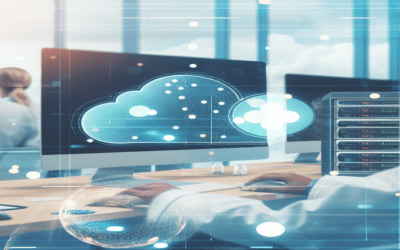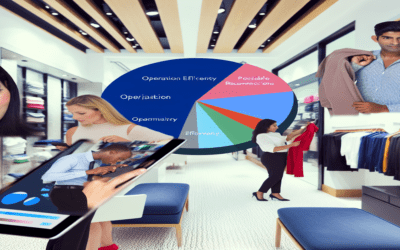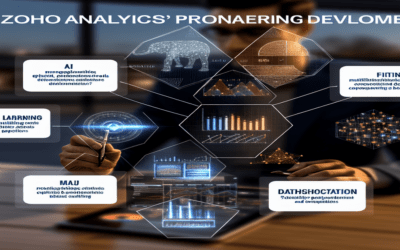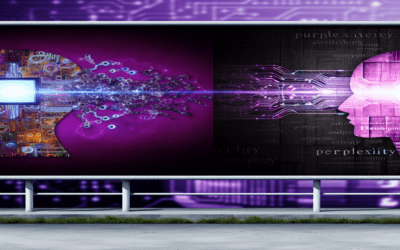In The News
Your Business & Tech Trends
Google Maps Glitch Sparks Road Closure Chaos in Colorado
Google Maps recently mislabeled several major roads in Colorado Springs as closed, causing confusion and unnecessary detours for drivers. This incident highlights the importance of verifying road closure information from multiple sources to ensure accurate navigation.
AI Newspaper Breakthrough: Il Foglio’s Fully Generated Edition
An Italian newspaper has published the world’s first AI-generated edition, covering various topics from politics to relationships. This experiment showcases the growing integration of AI in journalism and raises questions about the future of news production.
Pixel 9a Leaks: Early Reviews Spoil Google’s Surprise Launch
Early reviews praise the Google Pixel 9a’s impressive performance, long battery life, exceptional camera, and clean Android experience with long-term software support, positioning it as a compelling mid-range smartphone ahead of its official launch.
AI Transforms Healthcare: Predicting Diseases with Cutting-Edge Analytics
Predictive disease analytics is revolutionizing healthcare by leveraging AI and machine learning to identify patient risks, optimize treatments, and improve operational efficiency. The market is rapidly growing, driven by advancements in technology and the demand for precision medicine and data-driven decision-making.
Russo Brothers Stand by AI in Electric State Film
The Russo Brothers defend their use of AI voice modulation in their upcoming Netflix film “The Electric State,” sparking a broader discussion about the role of AI in the creative process and its potential impact on the film industry.
AI Voiceover Concerns: Aloy’s Dilemma Sparks Industry Debate
Ashly Burch, the voice behind Aloy in the “Horizon” series, expressed concerns over an AI-generated version of her character, highlighting the ongoing battle between voice actors and the gaming industry regarding AI protections, fair compensation, and consent.
Harnessing Data Analytics for Unparalleled Credit Union Member Experiences
Data analytics is revolutionizing the credit union member experience by enabling personalization, streamlining operations, fostering loyalty, and driving innovation. Credit unions must embrace this transformation to thrive in the future while keeping members at the heart of every decision.
Pixel 9a Leak: Unveiling Google’s Next Budget Sensation
Early reviews of the Google Pixel 9a reveal a sleek design, impressive camera setup, large battery capacity, and extended software support, positioning it as a strong contender in the mid-range smartphone market.
Predictive Analytics: Transforming Healthcare with Proactive Solutions
Predictive analytics is transforming healthcare by leveraging data to identify high-risk patients, personalize treatments, and optimize operations. This proactive approach improves patient outcomes, reduces costs, and enhances decision-making for healthcare professionals.
Discover the Quirky Charm of Minnesota’s Free SPAM Museum
The SPAM Museum in Austin, Minnesota, has been named the state’s best free attraction, offering visitors an engaging journey through the history and cultural significance of this iconic canned meat product.
AI Gaming Takeover: Human Performance Art at Risk?
Ashly Burch, voice of Aloy in “Horizon,” expresses concern about AI’s potential misuse in gaming, undermining human talent. The ongoing SAG-AFTRA strike seeks protections for actors against AI exploitation.
Google’s Parent Company Snaps Up Wiz in Colossal Cybersecurity Acquisition
Google’s acquisition of cybersecurity startup Wiz for $32 billion strengthens its cloud security offerings, particularly in multicloud and hybrid environments. The deal faces regulatory scrutiny but could reshape the industry and inspire further M&A activity.
Discover More with Google Maps’ 20th Anniversary Update
Google Maps celebrates its 20th anniversary by highlighting the contributions of its Local Guides community and introducing a new Shared List Feature, which offers curated recommendations of top-rated destinations in cities like Hong Kong.
AI Sparks Hollywood Revolution in The Electric State
Joe Russo, co-director of Netflix’s “The Electric State,” revealed the accessible use of AI for voice modulation in the film, sparking discussions about AI’s role in the creative industry and its potential implications for future projects.
Everstream Executives Recognized as Top Supply Chain Leaders for 2025
Everstream Analytics executives Paige Cox and Daniela Baron have been recognized as 2025 Pros to Know by Supply & Demand Chain Executive for their exceptional leadership and contributions to supply chain innovation and risk management.
Alexa’s AI Upgrade Comes at a Privacy Cost
Amazon has removed the option for Alexa users to prevent their voice recordings from being sent to the company’s servers, sparking concerns about user privacy and data protection as the tech giant prioritizes AI development.
Hero’s Ultimate Sacrifice: Woman Loses Life Saving Beloved Dog
A woman’s compassionate attempt to rescue a distressed dog ended in tragedy when she and the animal were fatally struck by a car, highlighting the risks of roadside animal rescue.
Zoho Analytics: Unleashing AI-Powered Insights for Enterprises
Zoho Analytics revolutionizes enterprise data analytics with AI, machine learning, and enhanced features for seamless data exploration, integration, and management. The platform empowers businesses to drive digital transformation and make informed, data-driven decisions.
AI Search Engines: Navigating the Future’s Uncharted Waters
AI search startups like Purple Lexity and Perplexity are revolutionizing the search engine landscape with advanced algorithms, user-friendly interfaces, and innovative monetization strategies, challenging the dominance of traditional search giants.
xAI Boosts AI Video Prowess with Hotshot Acquisition
xAI, Elon Musk’s AI company, has acquired Hotshot, an AI video startup, to compete with OpenAI and Google in the rapidly evolving AI video generation market by integrating Hotshot’s advanced capabilities into xAI’s infrastructure.
UK Leads the Way: Pioneering AI with Ethical Integrity
DeepMind’s founder emphasizes the UK’s potential to become a global AI leader, highlighting its top universities, thriving startup ecosystem, and the need to actively shape international standards and attract investment.




















